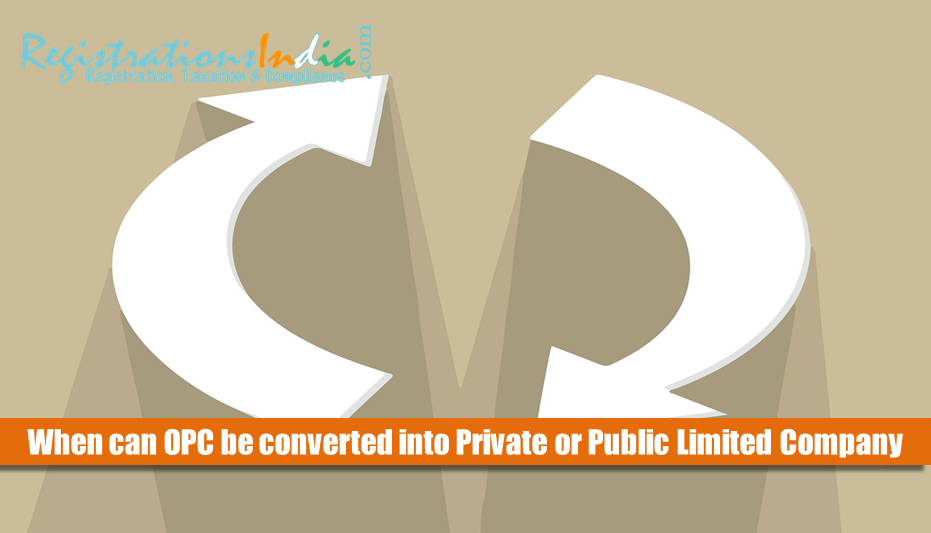When can an OPC be Converted into a Private Limited or Public Limited Company ?
Companies Act, 2013 came into effect from 1st April, 2014. It replaced the old Companies Act and introduced some new concepts as well. One of them is One Person Company. A One Person Company (OPC) as the name suggests is a company that can be formed by one single person. As per the old Companies Act, at least two people were required to start a company but the new feature of one person company allows a single person to start an company of its own. Know when can an OPC be Converted into a Private Limited Company.
It exercises all the features of a company like limited liability, perpetual succession, separate legal entity, common seal, etc. It can also accept loans in its own name as it has its own identity and separate legal entity.
An OPC uses 'Private Limited' as its title. In a one person company, the promoter can be the director as well as the shareholder. He need not appoint anyone else except for a nominee. Appointment of a nominee is a must as in events of incapacity, death or insanity of the promoter, the nominee gets the charge to run the business.
There are certain cases when one has to convert the OPC either voluntarily or compulsorily in a Private Limited or Public Limited Company.
Conversion process
A One Person Company can convert to private or public limited company in two ways, that is,
- Compulsory conversion ; and
- Voluntary conversion
Compulsory conversion
As per Rule 7(4) of Companies (Incorporation) Rules, 2014, a company having paid-up capital of ₹50 lacs or more or an annual turnover of more than ₹2 crores, must compulsorily convert to a public or private limited company by passing a special resolution in the general meeting. This rule is not applicable on Section 8 companies. Prior to passing the resolution the company must first obtain an NOC from its creditors and members, if any.
The company then needs to submit the resolution with the Registrar in Form No. MGT-14 within 30 days of passing the resolution. It shall also file application for conversion in Form No. INC-5. Then the company must intimate the Ministry of Corporate Affairs (MCA) about the conversion in Form No. INC-6.
Voluntary conversion
The voluntary conversion of a company to public or private limited company is governed by Section 18 of Companies Act, 2013 and Rule 7(4) of Companies (Incorporation) Rules, 2014. As per the provision of the Act, an OPC cannot voluntarily convert to a private limited company or public limited company unless it has completed two years since its incorporation. The Rules for conversion is similar to that of compulsory conversion except that the paid-up capital must be less than ₹50 lacs and turnover too must be ₹2 crore or less. Secondly, instead of Form No. INC-5, INC-6 is used and along with it certain documents need to be submitted as well. They are:
- Declaration from directors stating consent of creditors, paid up capital and annual turnover
- List of creditors
- List of members
- Copy of NOC from secured creditors; and
- Last audited financial statements.
I hope you have liked this article on 'When can an OPC be converted into a Private limited Company or public limited company ', if yes please comment below. For more information you can visit www.registrationsindia.com
Let us know your Registration, Taxation & Compliance Requirements


